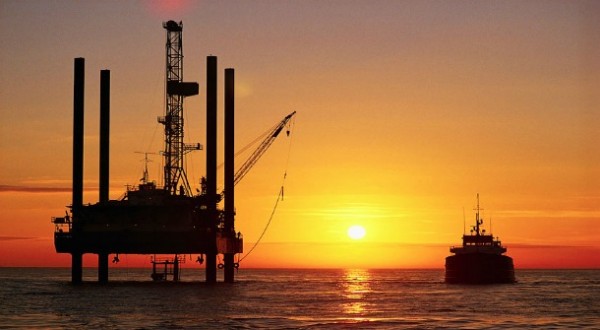 Oil prices climbed Friday morning after U.S. missile strikes in Syria roiled financial markets and promised new tensions with key energy suppliers Russia and Iran.
Oil prices climbed Friday morning after U.S. missile strikes in Syria roiled financial markets and promised new tensions with key energy suppliers Russia and Iran.
Brent Crude futures for delivery in June traded 1.2% higher at $55.56 in early trading in London on Friday, while the U.S. benchmark West Texas Intermediate climbed 1.4% to $52.41. Oil’s rise was accompanied by the dollar’s decline against the yen and a rise in the price of gold, which climbed about 1% to $1,265.40 an ounce, as investors shifted toward defensive assets.
American destroyers USS Ross and Porter launched 59 Tomahawk cruise missiles from the Eastern Mediterranean, the first time that the U.S. has directly intervened in Syria’s long-running civil war. The missiles targeted the al-Shayrat airfield, near Homs, which was identified by the U.S. as the base from which a chemical attack was launched earlier this week.
The targets were “aircraft, hardened aircraft shelters, petroleum and logistical storage, ammunition supply bunkers, air defense systems, and radars,” the Pentagon said in a statement.
Increased political risk tends to boost oil prices on fears of supply disruption. The immediate impact of the attack on oil supplies is likely to be limited as Syria’s input into global oil supplies has been severely curtailed by sanctions against Bashar al-Assad’s regime and by years of fighting that have degraded its oil infrastructure. Syria produced about 35,000 barrels of oil a day over 2016, down from more than 400,000 a day before the conflict erupted in early 2011.
“It appears unlikely that the (oil price) move will be persistent,” noted Goldman Sachs analysts including Peter Hackworth. “Assuming no major disruption, a geopolitical risk premium raising oil prices may actually be bearish for supply demand balances, potentially opening up another opportunity for US E&Ps to hedge and increase activity.”
Oil prices have fluctuated between about $50 and $56 a barrel this year, up from 2016 lows of as little as $26 a barrel. Prices have been supported by OPEC production cuts that came into force in January, though the rise has been capped by an increase in output from U.S. shale producers.
Analysts saw little immediate potential for the strikes to effect output or shipments from Iraq, which neighbors Syria and is one of OPEC’s biggest producers. Iraq pumped 4.4 billion barrels of oil in March.
Despite the likely limited impact on oil supply, markets are wary of the potential for the attacks to add to global political risk, and notably of the strain they could put on U.S. and European relations with Russia and Iran, both key Assad allies.
Russia on Friday labelled the attacks an “aggression” and said they were “a significant blow to Russian-American relations, which were already in a sorry state.” A report by the newswire AFP also claimed that Russia had suspended its agreement to communicate with the U.S. to avoid conflicts between the two nations in Syrian airspace.
U.S. Secretary of State Rex Tillerson, the former Chairman and CEO of ExxonMobil ( XOM) , said the U.S. had not discussed the missile strikes with Russia prior to their launch and added that the strike did not signal a significant change in U.S. policy toward Syria.
The Pentagon said that the Russian’s had been informed of the strikes before they were launched.
Iran joined Russia in condemning the attacks. “Such measures will strengthen terrorists in Syria…and it will complicate the situation in Syria and the region,” according to a statement by Iran’s Foreign Ministry Spokesman Bahram Qasemi that was cited by Iranian news agency ISNA.
The strikes could also add tension to talks between president Donald Trump and China’s president Xi Jinping, who met for the first time on Thursday night. China has repeatedly blocked U.N. resolutions against Assad’s regime and on Friday said it was opposed to the “use of force” in Syria, though it stopped short of condemning the air strikes.
THE STREET

Leave a Reply
You must be logged in to post a comment.